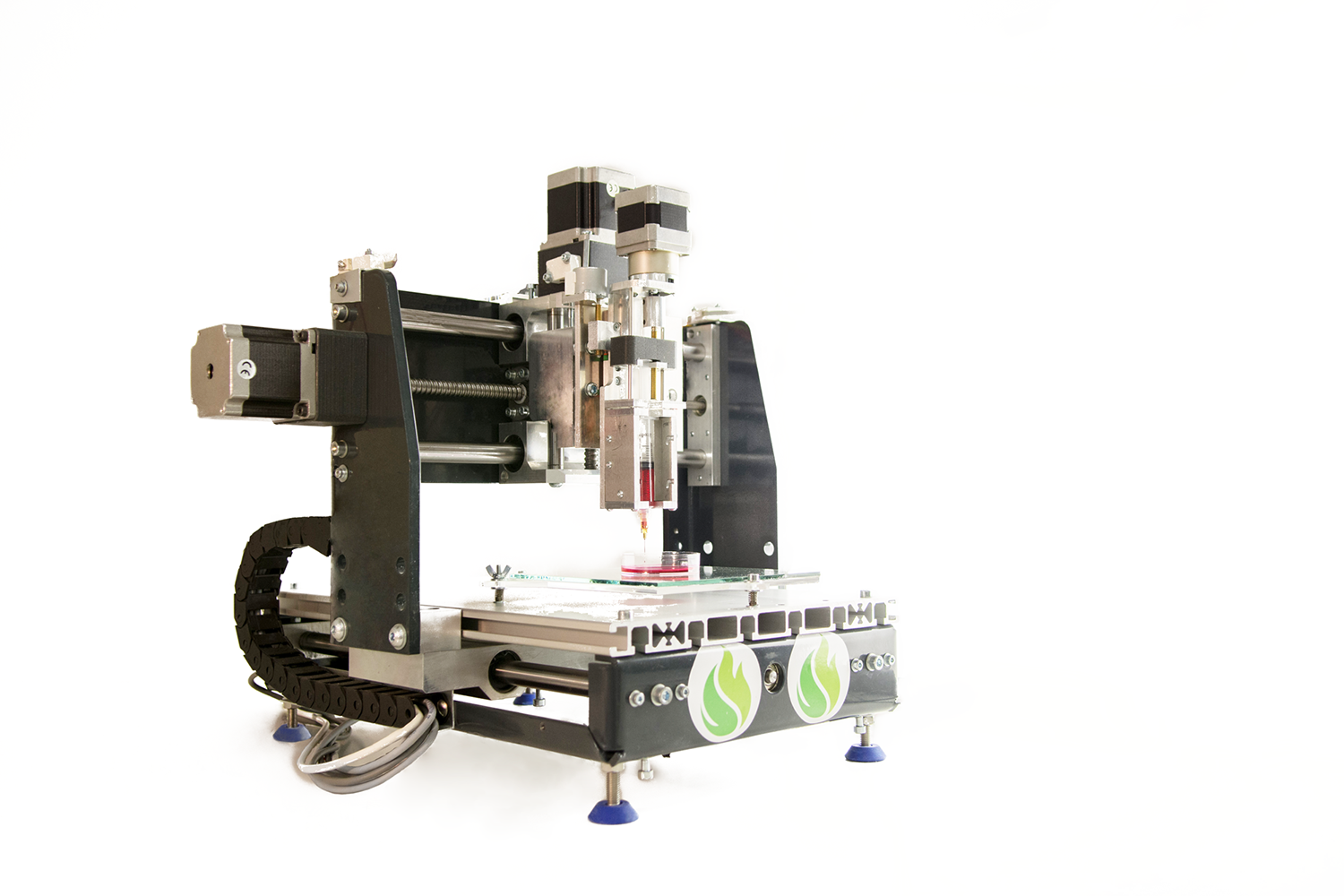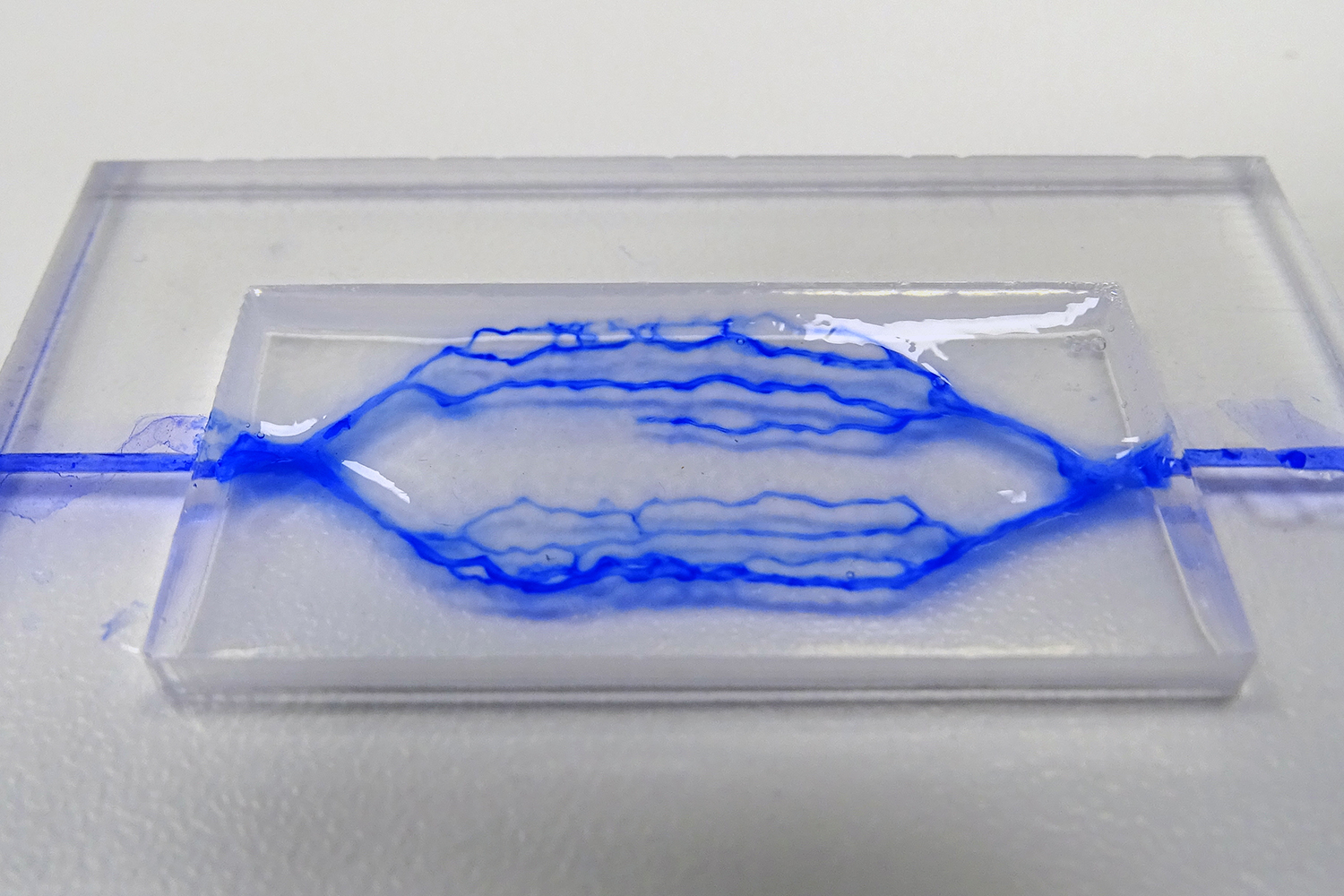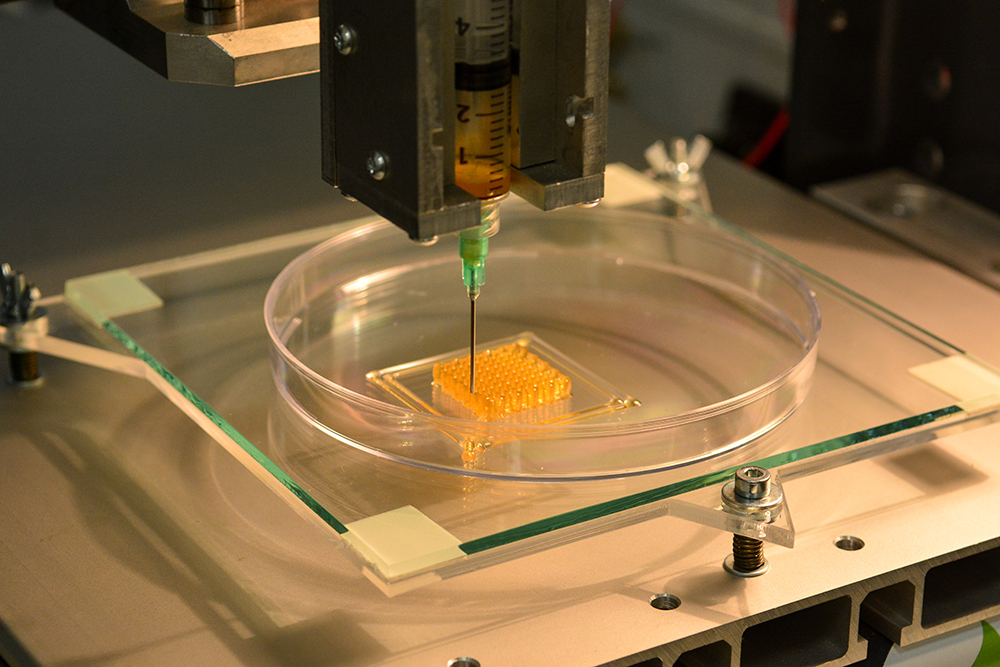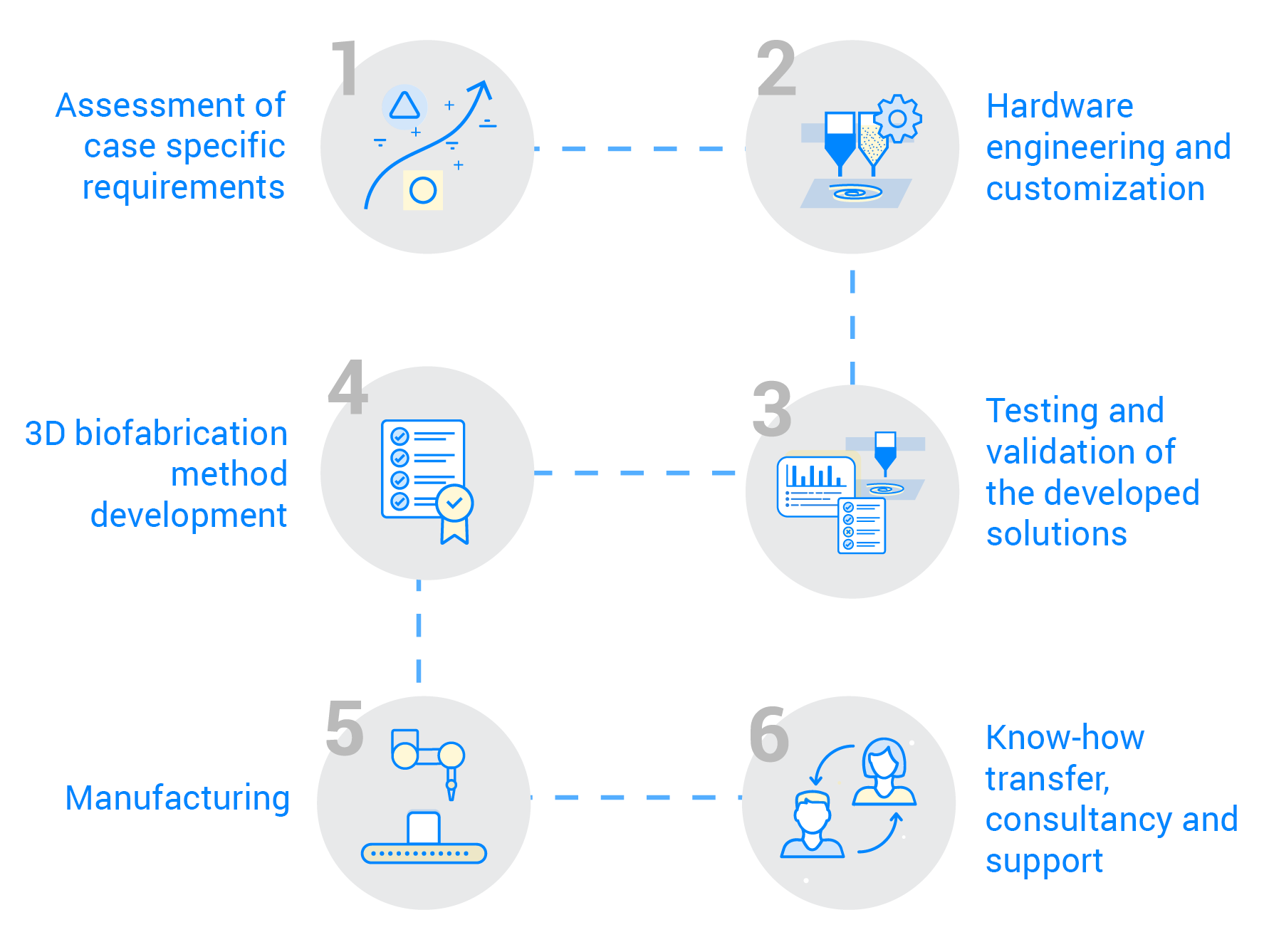Symbiolab 2.0 and Vitaprint Release
A lot has happened in the last past year. With the moving of IRNAS to the new facilities, we also obtained a newer and especially more spacious bio-lab. While the time required to set-up full functionality of the lab space prevented some experimental work, the progress didn’t slow us down at all. Thus, we used the opportunity to take care of important administrative work, registering as a research group at the national agency ARRS and drafting a scientific paper on open-source bioprinting, which has been accepted for publication at the Journal of Open Hardware.
Once the lab was up and running, we continued our research project on mushroom cultivation and concluded it with a research thesis on antimicrobial and antioxidative effects of harvested and cultivated medicinal mushrooms and their mycelia. Simultaneously we upgraded our 3D bioprinter Vitaprint with new, more precise, more powerful extruders with integrated cartridge thermo-regulation and began testing them with “super viscous” gluten pastes with very good results.
The fabrication capabilities of the improved Vitaprint has opened new channels for academic collaboration and has sparked the plan for a joint research project on integrating microextrusion with multiphoton polymerization bioprinting and the fabrication of advanced intestinal tissue models. A consortium of partners from Maribor and Linz has been gathered for the project, including the Institute of Biomedical Sciences (University of Maribor), the Institute of Biomedical Mechatronics (JKU Linz) and the University of Applied Sciences Upper Austria. If the funding application is successful, the project is planned to launch in its full scope in the beginning of 2018. However, we have not been resting and development has already started. We have begun the research and development, modifying the microextrusion bioprinter with laser integration and most recently, we have successfully developed a protocol for the fabrication of free-form microfluidic channels in a biocompatible gelatin matrix. The latter has enormous potential on its own and we are currently refining it to be useful for tissue engineering and regenerative medicine.
Starting off as a link between the GoodEnoughCNC project and the DIY Bio environment, the Vitaprint project has grown substantially and has become the main focus point of our Symbiolab. With the experience and know-how we have gathered about this promising technology, we wish to contribute to its further development, which is progressing rapidly on a global level. And no wonder, as fabricating frameworks for tissues and organs has the potential to shorten waiting lists for transplants, improve drug discovery while simultaneously reduce animal testing, create advanced toxicological and in-vitro illness models, etc. On the other hand, the technology itself is not really new and many devices are already available for purchase. Still, the main challenges, such as vascularization, resolution, broad biocompatibility and adhesion, or cell-growth proportional scaffold degradation, remain to be solved. Especially for soft tissues. A lot of research is currently being invested into the development of bioinks which could address many of these challenges and the multimodal biological requirements often take a toll on printability. We believe that optimizing the fabrication process could bring dramatic improvements to the field and accelerate further development of tissue engineering and regenerative medicine.
This is why we are open-sourcing the full Vitaprint platform - hardware documentation, calibration protocols, fabrication methods, including demo files, all of which can be found on Github and are open for forking and modification.
We will also use the platform as a basis for further development and will offer custom modifications for specialized scientific and industrial solutions. With the R&D experience, the interdisciplinary IRNAS team and the manufacturing capabilities of Fabrikor d.o.o. we cover the whole innovation and deployment process, ranging from assessment of case specific requirements, hardware engineering and customization, 3D biofabrication method development, testing and validation of the developed solutions, manufacturing, as well as know-how transfer, consultancy and support.
With open-source principles in mind, we take advantage of collaborative design for future-proof solutions, over which the user has total ownership. To learn more, visit our new website irnas.eu/vitaprint and feel free to contact us!





